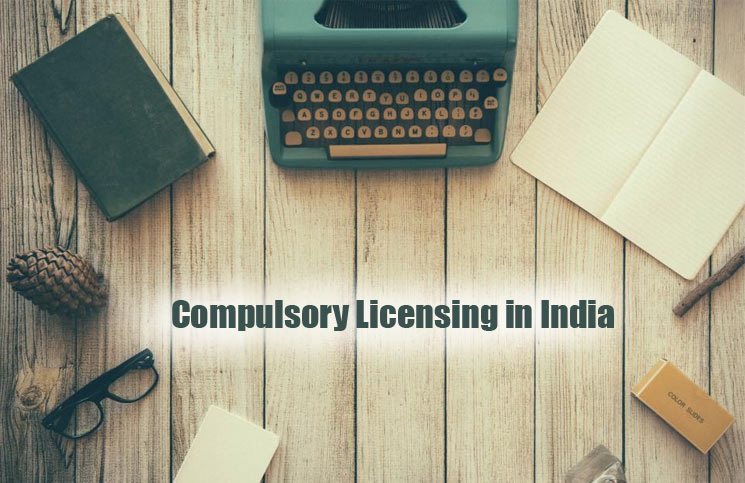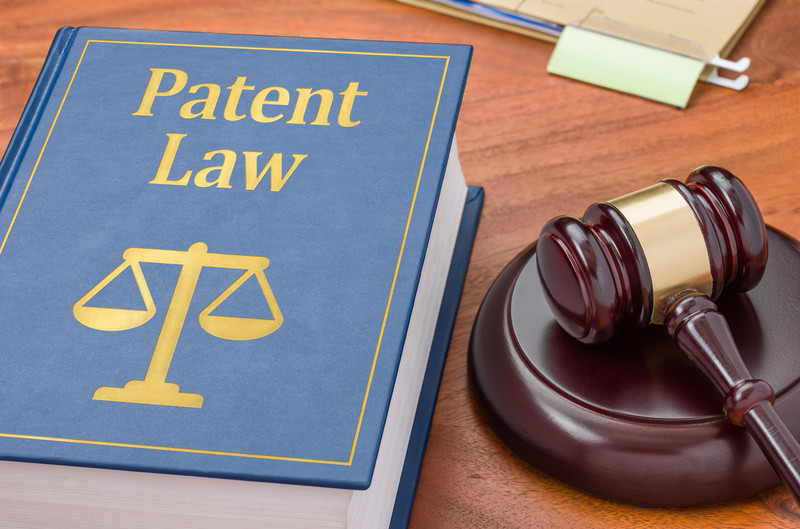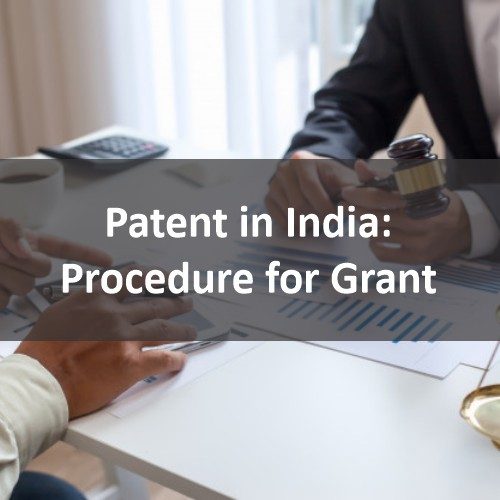Grant of Patents and compulsory licensing of Patent Registration in India
Grant of Patents and compulsory licensing of Patent Registration
Grant of patents is subject to certain conditions stating that-
1. Any kind of machine, apparatus or other article or any article made by using a process for which the patent is granted, may be imported or made by or on behalf of the Government for the purpose only of its own use;
2. Any patented process may be used by or on behalf of the Government for the purpose only of its own use;
3. Any kind of machine, apparatus or other article or any article made by using a process for which the patent is granted, may be used, by any person, only for the experimental purposes used in experiment or research including the imparting of instructions to pupils; and
4. That any patented medicine or drug may be imported by the Government either for the purpose of its own use or for supply in any dispensary, hospital or other medical institution maintained by or on behalf of the Government or Central Government by notification in the Official Gazette.
Grant of patent which is subject to certain activities which exempt from the act of infringement are as follows;
a. Government use: According to Section 100, after the patent application is filed or anytime after the grant of patent, invention can be used by Central Government and by any person authorized in writing, for the purposes of the Central Government. Central Government cannot made the authorization either before or after the patent is granted and either before or after the acts in respect of which authorization is given. Under such situations, the patentee shall be paid an adequate remuneration taking into account the economic value of the use of the patented invention. Also the Central Government shall keep the patentee well informed about the usage of the patented invention from time to time, except in case of national emergency or any other urgency.
b. Importers: As per the Section 47(1) and Section 47(2) of the Patent Act, the patented product may be imported or made by or on behalf of the government. Further, the patented process may be used by or on behalf of the government for its own use.
c. Research exemption: According to the provisions given in Section 47(3), any person can use the patented invention just for experimental purpose or research work, including and imparting instructions to students.
d. Supply of patented drug to health institution: Subjected to the provision in Section 47(4), any patented invention that cover a medicine or drug, can be imported by the government entirely for his own use or to distribute it to any dispensary, hospital or other medical institution which are official in the Official Gazette.
e. Use of patented inventions on foreign vessels: According to Section 49, if an invention is a part of foreign invention and comes to India only for a limited period of time i.e., temporarily, then the act shall not be considered as an infringement.
f. Bolar exemption: As per the provisions given in Section 107A(a), any patented invention can be utilized, constructed, made, sold or imported merely for the reasons related to development and submission of information to regulatory authority of India or elsewhere.
Grounds for the grant of compulsory license
Compulsory license is an authorization given by the Government to a person for the use of a patent without the permission of the patent holder. This evidently works against the will of the patent holder but compulsory licenses are considered as a prerequisite in certain cases like cases of national emergency, health crisis and like. Even TRIPS allows flexibilities in the form of compulsory licenses on the attainment of certain necessities. There are certain provisions under Indian Patent Act devoted to the grant of compulsory licenses.

As per the Indian Patent Act, 1970, a compulsory license can be granted according to various sections. They are as follows;
Section 84: Patent misuse
a. Any person interested may make an application to the Controller for grant of Compulsory License for a patent after the expiry of three years from the –date of grant of the patent on the following grounds:
i. That the reasonable requirements of public with respect to the patented invention have not been satisfied, or
ii. That the patented invention is not available to the public at reasonably affordable price, or
iii. That the patented invention is not worked in the territory of Such an application may also be made by the licensee.
b. No person shall be stopped from alleging the grounds i-iii above by reason of any admission made by him in the licence or otherwise or by reason of his having accepted such a licence.
In considering such an application, the Controller shall take into account-
i. The nature of the invention, the time which has elapsed the patented invention have not been satisfied, or reasonably affordable price, or India.
ii. The ability of the applicant to work the invention to the since the sealing of the patent registration in coimbatore and the measures already taken by the patentee or any licensee to make full use of the invention; public advantage;
iii. The capacity of the applicant to undertake the risk in providing capital and working the invention, if the application were granted;
Section 92: Compulsory license on notification by Central Government
According to this section, if the Central Government is satisfied, in respect of any patent in force in circumstances of national emergency or in circumstances of extreme urgency or in case of public non-commercial use, then it is necessary that compulsory licenses should be granted at any time after the sealing thereof to work the invention. Extreme urgency may include public health crises, relating to Acquired Immuno Deficiency Syndrome, Human Immuno Deficieney Virus, tuberculosis, malaria or other epidemics. On receiving an application, the Controller shall grant to the applicant a licence under the patent on certain terms and conditions. The Controller shall attempt to secure that the articles created under the patent shall be available to the public at the lowest prices.
Section 92A: Compulsory license for export of patented pharmaceutical products in certain exceptional circumstances
Compulsory license shall be available for manufacture and export of patented pharmaceutical product to any country having insufficient or no manufacturing capacity in the pharmaceutical sector for the concerned product to address public health problems, provided compulsory license has been granted by such country or such country has, by notification or otherwise, allowed importation of the patented pharmaceutical products from India. The Controller shall, on receipt of an application in the prescribed manner, grant a compulsory license of patent solely for manufacture and export of the concerned pharmaceutical product to such country under such terms and conditions as may be specified and published by him. The provisions of (a) and (b) shall be without prejudice to the extent to which pharmaceutical products produced under a compulsory license can be exported under any other provision of this Act.
‘Pharmaceutical products’ means any patented product, or product manufactured through a patented process, of the pharmaceutical sector needed to address public health problems and shall be inclusive of ingredients necessary for their manufacture and diagnostic kits required for their use.
Who can make an application for grant of compulsory licence and when?
According to Section 84(1)(c), if the invention is not worked in the province of India, then after the completion of 3 years of the date of grant of patent, any interested person may file an application for the grant of compulsory license by filing Form 17 along with the fee of Rs. 6,000/-.

In accordance with Section 84(7), the reasonable requirements of the public shall be deemed not to have been satisfied-
If, by reason of the refusal of the patentee to grant a licence or licences on reasonable terms,
1. An existing trade or industry or the development thereof or the establishment of any new trademark or industry in India or the trade or industry of any person or class of persons trading or manufacturing in India is prejudiced; or
2. The demand for the patented article has not been met to an adequate extent or on reasonable terms; or
3. A market for export of the patented article thereof or the establishment of any new trade or industry in India or the trade or industry in India or the trade or industry of any person or class of persons trading or manufacturing in India is prejudiced; or an adequate extent or on reasonable terms; or manufactured in India is not being supplied or developed; or activities in India is prejudiced; or
4. The establishment or development of commercial activities in India is prejudiced; or
a. If, by reason of conditions imposed by the patentee upon the grant of licences under the patent registration in coimbatore or upon the purchase, hire or use of the patented article or process, the manufacture, use or sale of materials not protected by the patent, or the establishment or development of any trade or industry in India, is prejudiced; or
b. If the patentee imposes a condition upon the grant of licences under the patent to provide exclusive grant back, prevention to challenges to the validity of patent or coercive package licensing, or
c. If the patented invention is not being worked in the territory of India on a commercial scale to an adequate extent or is not being so worked to the fullest extent that is reasonably feasible; or
d. If the working of the patented invention in the territory of India on a commercial scale is being prevented or hindered by the importation from abroad of the patented article by
i. The patentee or persons claiming under him; or
ii. Persons directly or indirectly purchasing from him; or other persons against whom the patentee is not taking or has not taken proceedings for infringement.
